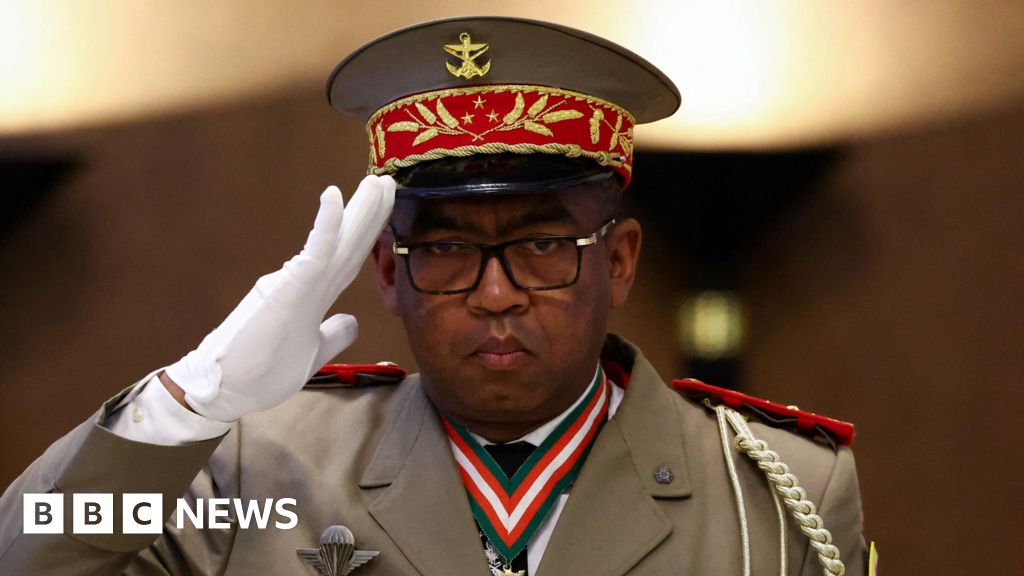Army general named as Madagascar PM to quell Gen Z protests

Madagascar's President Appoints Army General as Prime Minister Amidst Growing Protests
Madagascar's President Andry Rajoelina has named an army general as the new prime minister in what is widely seen as an attempt to quell escalating youth-led protests against his leadership. The appointment of Gen. Ruphin Fortunat Zafisambo comes amid rising tensions and widespread discontent over issues ranging from persistent utility cuts to allegations of corruption.
President Rajoelina, in a televised address, stated that the nation required a prime minister "capable of restoring order and the people's trust." However, the move has been met with skepticism and outright rejection by the protest movement, known as Gen Z Mada, which has demanded Rajoelina's resignation.
Gen Z Mada Rejects Appointment, Calls for President's Resignation
Gen Z Mada issued a statement rejecting Gen. Zafisambo's appointment and giving President Rajoelina a 48-hour ultimatum to resign. "As long as Rajoelina remains in power, we will continue the struggle," the statement declared, signaling the movement's determination to continue its protests.
The protests, which began on September 25th, were initially triggered by public outrage over frequent water and electricity outages. However, they have since evolved into a broader expression of dissatisfaction with the government's handling of corruption, high unemployment, and the rising cost of living.
Militarization of Government Raises Concerns
The appointment of a high-ranking military official as prime minister has raised concerns about the increasing militarization of the government. This move comes shortly after President Rajoelina publicly voiced fears of a potential coup attempt, leading analysts to believe that the appointment is intended to solidify the army's support during a period of heightened political instability.
"This appointment is a clear signal that Rajoelina is prioritizing security and control over addressing the underlying grievances of the protesters," says Dr. Marie Razafindratandra, a political science professor at the University of Antananarivo. "While it might provide short-term stability, it risks further alienating the population and deepening the political crisis."
Background: Political Instability and Socio-Economic Challenges
Madagascar has a history of political instability, marked by multiple uprisings and power struggles since gaining independence in 1960. In 2009, mass protests forced then-President Marc Ravalomanana to step down, paving the way for Rajoelina's initial rise to power. Rajoelina governed for four years before returning to the presidency after the 2018 election. The current protests represent the most significant challenge to his leadership since his re-election in 2023.
Beyond the political turmoil, Madagascar faces significant socio-economic challenges. Despite being rich in natural resources, it remains one of the poorest countries in the world. According to the World Bank, approximately 75% of the population lives below the poverty line. Access to basic services, such as electricity, remains limited, with only about one-third of the population having access, according to the International Monetary Fund (IMF).
Opposition Leader Weighs In
Former President Marc Ravalomanana has voiced his support for the protesters, criticizing Rajoelina's leadership style. In an interview, Ravalomanana stated that Rajoelina's biggest problem is that he "doesn't listen" to the people. He also expressed skepticism about the effectiveness of Gen. Zafisambo's appointment, noting that the general's previous role in the prime minister's office did not resolve the existing crisis. Ravalomanana reiterated his opposition to military intervention and stated his willingness to return to office if the people desired it.
UN Concerns and Ongoing Clashes
The United Nations has expressed concern over the escalating violence during the protests. While the UN reported that at least 22 people had been killed and over 100 injured, the government has disputed these figures, dismissing them as based on "rumours and misinformation."
Clashes between security forces and demonstrators continue in several cities across Madagascar. Reports indicate that security forces have used tear gas and erected barricades to control the protests. The situation remains tense, with no immediate resolution in sight.
"The government needs to engage in meaningful dialogue with the protesters and address their legitimate concerns," argues Professor Alain Ratsimbaharison, a specialist in conflict resolution at the Institute for Peace and Security Studies in Addis Ababa. "A purely security-based response will only exacerbate the situation and risk further instability."
Protests triggered by utility cuts and broader discontent Gen Z Mada demands President Rajoelina's resignation Appointment of army general raises concerns about militarization Madagascar faces significant socio-economic challenges
Originally sourced from: BBC News Africa
